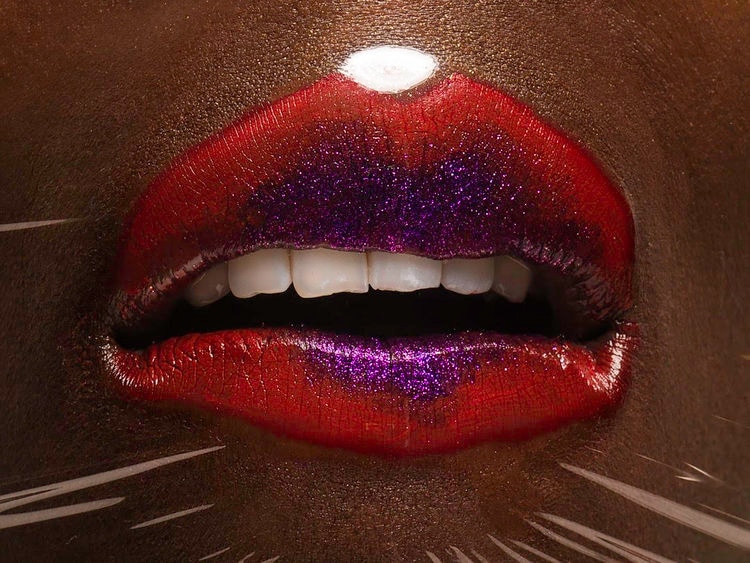RuPaul’s Drag Race is coming to the U.K. and there’s already controversy
The cast of the first season of RuPaul’s Drag Race U.K. has been announced and the internet is, to say the least, already obsessed.
It might not be entirely mainstream yet, but it’s far removed from the isolated, underground art form it once was: drag performers will be a staple at any LGBTQ event you might visit. Drag brunches are infiltrating heteronormative spaces every weekend.
RuPaul’s Drag Race has aired eleven seasons in the U.S., as well as four All Stars seasons, where previous contestants return for the chance to enter the Hall of Fame. A U.K. edition, hosted by RuPaul herself, was announced by the BBC in December. Michelle Visage, Alan Carr, and Graham Norton were revealed as the judging panel earlier this year.
i-D is already asking, “How much Drag Race is too much Drag Race?” as, this week, RuPaul also announced both season 12 of the U.S. version and season 5 of All Stars. Based on previous years’ scheduling, we might be headed for six months of non-stop Ru, a prospect that is both thrilling and exhausting in equal measure.
The original American version is known for its cutthroat editing, turning minor upsets into major drama, and manufacturing and encouraging confrontation. One queen inevitably becomes the villain while some are pushed to one side and forgotten. Personally, I’m hoping for something more like The Great British Bake Off than Love Island. In other words, drama without resorting to savagery, while being thoroughly camp and entirely British.
This week saw the full cast of ten queens “Ru-vealed”, as well as a sneak peek at the first runway challenge—two ‘royal’ looks. It was quite a surreal experience, having met several of these queens in social situations over the past couple of years. Now, suddenly, they’re being propelled to international stardom (and scrutiny).
People on Twitter were quick to pick up on the fact that one of the contestants, Baga Chipz, wrote an article encouraging people to vote Conservative in the 2017 General Election—an unforgivable sin for many. However, as viewers get no input into the contestants’ progress—the whole series has already been filmed—this might have no impact at all, and could quickly be forgotten.
Many have lamented the lack of diversity in the show, with all but one of the queens based in England and eight of the ten competitors being white. I’ve seen several people quip that the line-up is “qWhite something”.
“People talk about representation all the time,” explained contestant Sum Ting Wong in an interview with the BBC, “but what if a little Chinese homo is watching this at home and sees me and thinks wow I’ve been brought up to do those things too.”
For many people within the queer community, this could be a landmark moment to showcase drag culture—and, as such, last week’s announcement comes as a disappointment. There are no female drag performers (yes, women can do drag too) and no drag kings. British drag is known for seasoned older queens (none of the contestants are older than 35) and eclectic performers sporting beards and playing with gender.
Of course, this is just the first season, hopefully of many. I know many established queens were reticent to apply until season one has aired, and it would be unfair to criticise the casting too harshly without knowing who applied and was refused. Plus, it’s important to remember that the casting is down to the producers while drag fans have a history of victimising queens online for decisions they have no part in.
But when has reality television ever accurately represented reality? Its name is a misnomer, an oxymoron. Love Island is hardly about love, Britain’s Got Talent prioritises narrative over talent and, well, dog acts have won Britain’s Got Talent twice. Drag Race in America is hardly an accurate picture of the variety across the country’s scene.
The success of Drag Race U.K. no doubt lies not in its reception here, but in how well it translates across the pond, where it will be available to stream on WOW Presents Plus, a new streaming service from the production company World of Wonder. Reality formats don’t always successfully migrate the Atlantic. America’s Got Talent might be a success, but Love Island USA (filmed in Fiji) was deemed a failure by many critics, lacking the messiness and unfiltered chaos of its British counterpart. Will Americans get the subtleties and sarcasm of the British humour? Will they be able to understand the Essex accents?
At the end of the day, does turning an art form into a competition ever really end well for everyone involved? Probably not, but maybe it’s more important to celebrate the little victories.





